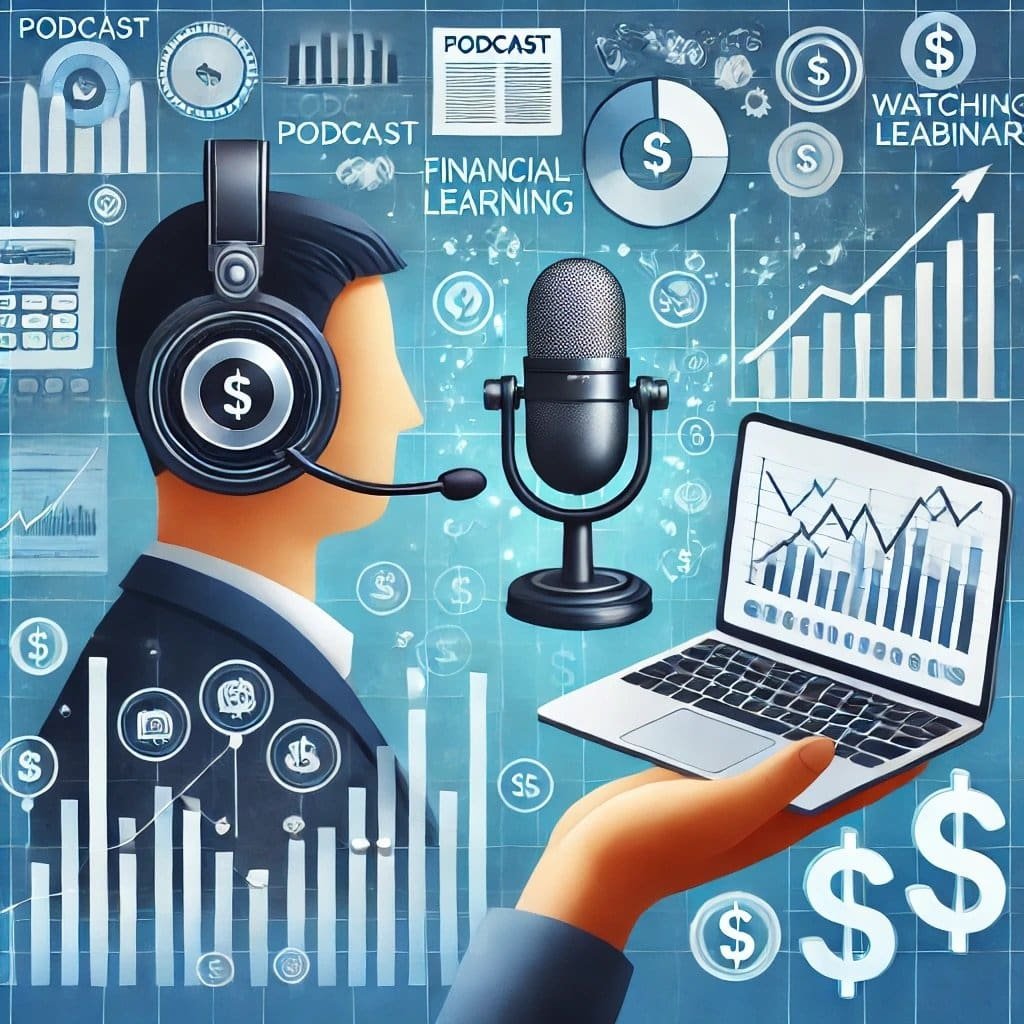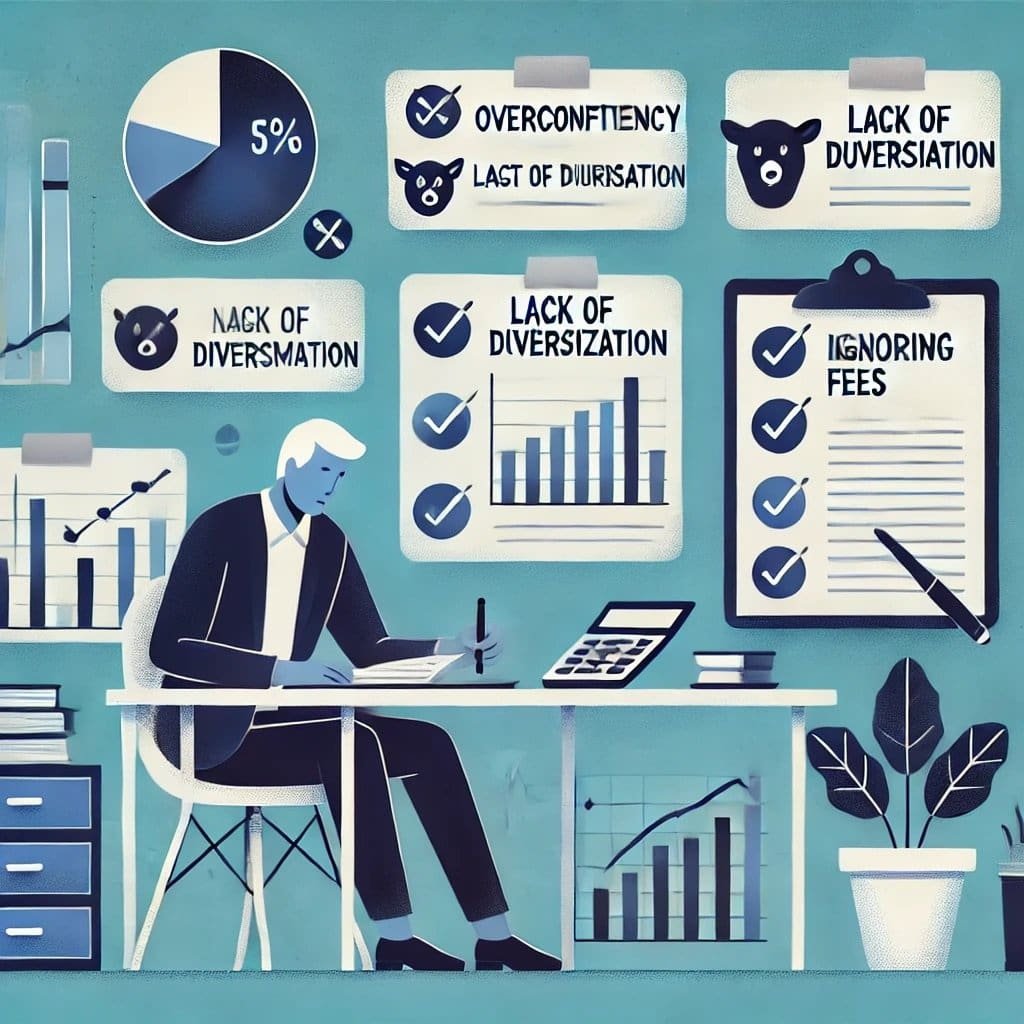In recent years, podcasts and webinars have become essential tools for financial education. These platforms offer convenient and accessible ways to learn about personal finance, investing, budgeting, and market trends from experts in the field. Whether you’re looking for in-depth analysis or practical tips, podcasts and webinars provide insights that can help you improve your financial literacy and make informed decisions. Here’s how you can use these digital resources to enhance your financial knowledge.
Benefits of Podcasts and Webinars for Financial Learning
1. Accessibility and Convenience
One of the biggest advantages of podcasts and webinars is their accessibility. Podcasts can be streamed or downloaded to your smartphone, making it easy to listen while commuting, exercising, or doing daily chores. Webinars, on the other hand, offer interactive learning sessions that can be attended live or watched as recordings, giving you flexibility in how and when you learn.
2. Expert Insights
Many financial podcasts and webinars are hosted by industry experts, economists, and successful investors who share their knowledge and experience. This allows you to gain insights directly from professionals who have years of experience navigating markets, managing money, and achieving financial success.
• Example: Shows like The Dave Ramsey Show or BiggerPockets offer practical advice on debt reduction, real estate investing, and personal finance management from experts in their respective fields.
3. Wide Range of Topics
Whether you’re interested in beginner-level financial education or more advanced investment strategies, podcasts and webinars cover a wide range of topics. You can learn about personal finance fundamentals, like budgeting and saving, or dive into more specialized areas such as cryptocurrency, real estate investing, or stock market analysis.
4. Interactive Learning
Webinars often include interactive elements such as Q&A sessions, polls, and discussions, which allow participants to engage directly with the host or other attendees. This interactive format makes it easier to ask questions and gain a deeper understanding of complex financial topics.
• Example: Financial education platforms like Investopedia and NerdWallet regularly host webinars on topics like retirement planning, investing basics, and market updates, where participants can ask questions in real time.
Top Financial Podcasts and Webinars to Follow
1. Podcasts
• The Dave Ramsey Show: Focused on personal finance and debt reduction, this popular podcast offers actionable tips on budgeting, saving, and eliminating debt using the “baby steps” approach.
• BiggerPockets Real Estate Podcast: For those interested in real estate investing, this podcast covers everything from buying rental properties to flipping houses, offering advice from seasoned real estate professionals.
• The Motley Fool Money Podcast: This podcast provides stock market analysis, investment tips, and market insights, perfect for both beginner and seasoned investors.
• The Financial Independence Podcast (ChooseFI): Focused on financial independence and early retirement, this podcast offers practical advice on saving, investing, and achieving financial freedom.
2. Webinars
• Investopedia Webinars: Investopedia offers a range of webinars on investing strategies, market trends, and financial planning. These sessions are led by financial experts and provide an opportunity to ask questions and gain deeper insights.
• NerdWallet Webinars: Focused on helping people make smarter financial decisions, NerdWallet hosts webinars covering topics like credit management, budgeting, and home buying.
• Morningstar Investment Webinars: Morningstar provides webinars on various investment strategies, including portfolio management, stock analysis, and long-term investment planning.
• Schwab Webinars: Charles Schwab offers educational webinars on a wide array of topics such as market outlooks, retirement planning, and investing basics, suitable for investors at all levels.
How to Use Podcasts and Webinars for Financial Learning
1. Choose Relevant Topics
Start by selecting podcasts and webinars that align with your financial goals. If you’re just getting started, focus on basic financial education topics like budgeting, saving, or building an emergency fund. As your knowledge grows, explore more advanced topics such as investing in the stock market, real estate, or cryptocurrency.
2. Create a Learning Schedule
Consistency is key to building financial literacy. Set aside time each week to listen to financial podcasts or attend webinars. Treat it like any other important activity—whether it’s during your commute or a designated learning hour at home.
3. Take Notes and Apply What You Learn
While listening to podcasts or attending webinars, take notes on key points and actionable tips. The goal is to not only absorb information but also to apply what you’ve learned to improve your financial habits. Whether it’s adjusting your budget, starting a new investment, or planning for retirement, use the knowledge gained to make tangible changes.
4. Join Communities and Engage
Many financial podcasts and webinars have accompanying communities or forums where listeners can engage with each other and the hosts. Join these communities to ask questions, share experiences, and learn from others who are on a similar financial journey.
• Tip: Webinars often offer the chance to ask questions in real time, so prepare any queries in advance to make the most of the opportunity.
5. Stay Updated
Subscribe to your favorite podcasts and follow webinars regularly to stay informed about the latest financial trends, market movements, and investment opportunities. Many experts discuss current events and their potential impact on your finances, giving you timely information to help you adjust your strategies.
Advantages Over Traditional Learning
1. Flexibility: Unlike traditional courses or books, podcasts and webinars allow you to learn at your own pace and on your own schedule. This is especially beneficial for busy professionals who want to improve their financial literacy without committing to formal classes.
2. Cost-Effective: Many podcasts and webinars are free or low-cost, providing high-quality financial education without the need for significant investment. This makes it an affordable way to enhance your knowledge.
3. Continuous Learning: Financial markets and trends are constantly evolving. Podcasts and webinars keep you up to date with real-time insights and expert commentary, ensuring that you stay informed and can adapt your financial strategies accordingly.
Conclusion
Podcasts and webinars offer a powerful, flexible, and accessible way to improve your financial knowledge. By listening to expert insights and participating in interactive webinars, you can stay updated on market trends, learn new investment strategies, and develop better money management habits. Incorporate these digital resources into your routine, and you’ll be well on your way to achieving greater financial literacy and success.


